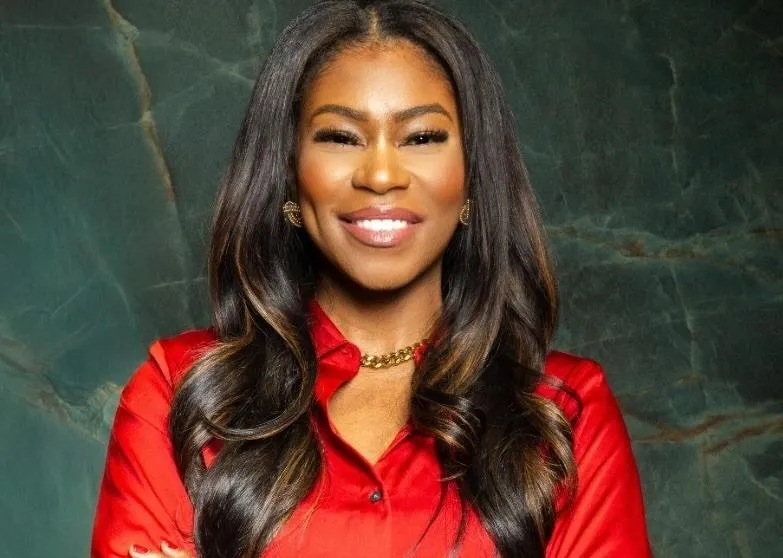
The Future of Luxury Discovery: How AI is Transforming Personal Concierge Services
The evolution of search is entering a fascinating new chapter. While we've spent the last two decades celebrating having "everything at our fingertips," today's consumers are craving something more refined: domain-specific, deeply personalized information that truly understands their unique preferences and lifestyle.
This shift is particularly pronounced in the luxury market, where generic recommendations simply don't cut it. Enter Nyah Chapman, a luxury strategist and entrepreneur who's building what could be the future of personalized discovery for affluent consumers.
From Corporate Sales to AI Innovation
Chapman's journey to founding Luxe AI began in an unlikely place: the corporate sales floors of luxury brands like Tom Ford and major media companies like Modern Luxury. For 15 years, she was the "front-of-the-lines" person, generating millions in revenue while developing an almost supernatural ability to anticipate client needs before they were even articulated.
"That comes with being able to look and see what your client needs before they even ask or tell you what their needs are," Chapman explains of her corporate experience.
But it was the constant stream of personal requests that sparked her entrepreneurial lightbulb moment. Friends and colleagues regularly turned to her for recommendations: the hottest restaurants, the latest hotel openings, the most exclusive experiences. Instead of fielding endless texts, she decided to create something scalable.
What started as a simple luxury lifestyle blog called Luxe List was actually a sophisticated data play from day one. "I'm a big data nerd girl," Chapman admits. "How can I capture all of this data and generate leads for myself while collecting information on a big group of affluent consumers that love all things luxury lifestyle?"
The Problem with Generic Personalization
Five years into running Luxe List, Chapman began noticing troubling trends in her analytics. Attention spans were shrinking, engagement was shifting, and traditional content strategies weren't resonating like they used to. The culprit? A fundamental mismatch between how companies think about personalization and how consumers actually behave.
"The way that marketers, media companies, any company really has personalized in the past is really segmented," Chapman observes. "If they know you like real estate, it's tagged and they send you newsletters about real estate. Now people are more dynamic—their interests change."
This insight led to a profound realization about the media landscape itself. Why, Chapman wondered, when everyone visits the same major publication website, does it look identical for every user? "It should already know what my interests are and the page should be dynamic," she reasoned. "I don't really care about some of the top stories. I want to know about what stories are for me."
Building the Next Generation of Discovery
Rather than wait for legacy media companies to evolve, Chapman decided to build the solution herself. Luxe AI represents her vision for what discovery should look like in an age of artificial intelligence: deeply personal, contextually aware, and focused on saving time while enhancing experiences.
The current MVP, called "Luxi Lite" (named after the AI assistant users interact with, similar to Siri or Alexa), starts with a comprehensive lifestyle quiz. Users share their favorite hotels, cuisines, and experiences, creating what Chapman calls "zero party data"—information willingly provided by users themselves.
But the real innovation comes in the next phase of development. Chapman's team is building technology that connects users' various rewards programs—from credit cards to hotel loyalty programs to retail memberships. "The average consumer has 20 or more rewards and loyalty programs," she explains. This integration provides "high intent signals" about actual spending behavior, not just stated preferences.
Imagine telling Luxe AI you're planning a trip, and the platform not only knows you prefer Hyatt hotels (because that's where you actually spend your points) but can also suggest outfits for your vacation based on your documented style preferences and recent purchases. This isn't theoretical—it's exactly where Chapman is heading.
The Data Privacy Balance
With great personalization comes great responsibility, and Chapman is acutely aware of the privacy concerns that keep consumers wary of data-driven platforms. "There's one thing that keeps me up at night—data privacy and data security," she admits.
Her approach is radical in its simplicity: complete transparency. Instead of burying privacy policies in lengthy terms and conditions, Luxe AI plans to be explicit about data usage from the start. "Can we use your data to show you better restaurants to go to? Can we use your data to show you better travel itineraries?" Chapman believes that when users understand the clear value exchange—better recommendations in return for data sharing—they'll be willing participants.
The value proposition is compelling: Luxe AI saves users an average of four to five hours when planning a vacation. For time-pressed affluent consumers, that efficiency gain may well be worth the data trade-off.
Beyond Individual Users: The Enterprise Play
While direct-to-consumer subscriptions (ranging from free to $199/month) form one revenue stream, Chapman sees even bigger opportunities in enterprise partnerships. Her target markets reveal a sophisticated understanding of where luxury service gaps exist:
Luxury Apartments: High-end residential buildings already pay for concierge services, but Chapman argues most are "terrible apps that don't do anything." Luxe AI could become a premium amenity that actually delivers value.
Premium Memberships: As traditional clubs like Soho House face financial challenges, Chapman sees an opportunity to revitalize the membership model. "When you think of what they're offering their users, it's just a location," she observes. Adding a personal AI concierge could differentiate memberships in a crowded market.
Airports: Luxury airport experiences could be enhanced with personalized concierge services that extend beyond the terminal.
Chapman's six-month goal is telling: sign five luxury apartments in Atlanta, representing about 2,000 users and nearly $250,000 in revenue. It's a focused, achievable target that could prove the enterprise model.
The Partnership Moat
Growth strategy centers on what Chapman calls partnerships as a "moat"—leveraging relationships with established luxury brands to gain credibility and access to target audiences. Her track record supports this approach: a single partnership with Nobu Atlanta generated 800 RSVPs for a Luxe List event, instantly building a substantial subscriber base.
"When it comes to premium brands from LVMH to even Hilton, it's all about the user experience," Chapman explains. Luxury brands are notoriously slow to adopt new technology, but this caution stems from their commitment to customer experience quality. For brands choosing between generic AI platforms and a specialized luxury-focused solution, Chapman believes the choice is obvious.
The Competitive Advantage of Specificity
Perhaps the most compelling aspect of Chapman's vision is her commitment to serving a specific audience exceptionally well rather than trying to be everything to everyone. Luxe AI targets affluent consumers—defined as households earning $165,000 or more annually. It's not an impossibly high bar, but it's specific enough to enable deep personalization.
"Are they going to pick OpenAI or are they going to pick Luxe AI? They're going to pick Luxe AI every time because it's not about serving everybody everything. It's about serving a certain customer deeply."
This focus on specificity over scale represents a broader trend in AI applications. While general-purpose AI tools grab headlines, the real value often lies in specialized solutions that understand particular domains, user types, and use cases intimately.
The Road Ahead
As Chapman builds toward her vision of transforming how affluent consumers discover and experience luxury, she's tackling one of the most interesting challenges in modern technology: creating AI that doesn't just process information faster, but actually understands human preferences better than humans understand them themselves.
The success of Luxe AI will ultimately depend on execution—building the technology infrastructure, securing the right partnerships, and maintaining user trust while delivering genuinely valuable personalization. But Chapman's combination of luxury industry experience, data expertise, and clear vision for the future of discovery positions her well for the challenge.
For an industry built on exclusivity and personalized service, AI-powered concierge services represent both an opportunity and a test. Can technology enhance the human elements that make luxury experiences special, rather than replacing them? Chapman's bet is that it can—and that affluent consumers are ready for the future of personalized discovery.
Watch the FULL EPISODE for additional insights on how often to update the creative in your digital advertising campaigns.
Watch the Full Episode on YouTube
Listen to the Full Episode on Spotify
Want to connect with EIC or be on our Podcast.
Schedule a free discovery call to discuss your specific digital advertising goals:
https://link.eic.agency/widget/bookings/eic_initial_discovery_start
This article is based on insights from the Click and Mortar podcast hosted by Mike Patterson and Dustin Trout, digital marketing experts focused on helping businesses maximize their advertising ROI.

